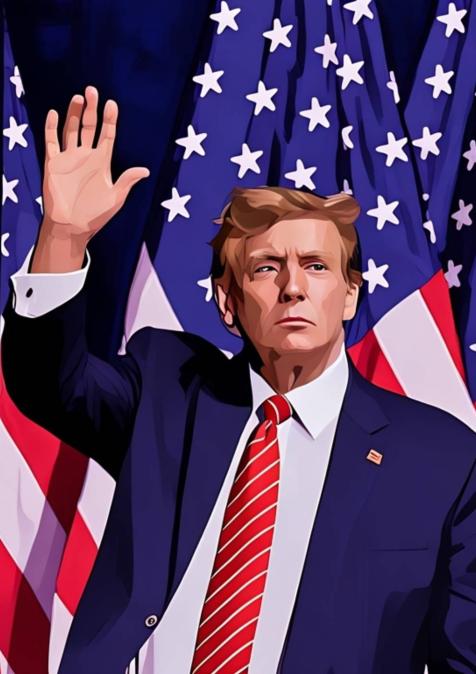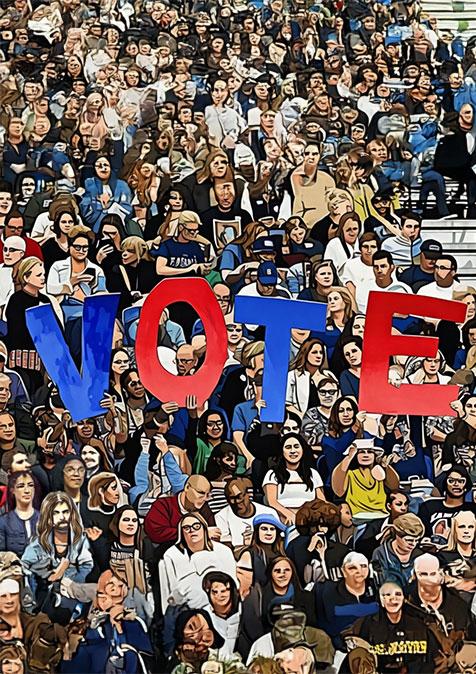Publications /
Opinion
As President elect Biden prepares for the enormous responsibility of becoming President of the United States (US), there is one question I want to ask him, writes Stephen Young, Washington Representative and Senior Analyst of the ”Union of Concerned Scientists” on November 7th, 2020: “Sir ,are you a fan of nuclear arms race? Because you are being handed one, a burgeoning nuclear and technology arms race waged by Russia, China and the United States.” Two weeks after Joe Biden will been sworn into office (January 20) the new head of state has, reports Stephen Young, “a golden opportunity” to make the world safer and more secure, by extending the New Strategic Arms Reduction Treaty (New Start), which will expire on February 5th, 2021, if time doesn’t run out for the current extension negotiations between Russia and the United States. New START is the last remaining bilateral arms agreement between the US and Russia, limiting the number of US and Russian deployed strategic nuclear war heads to 1550 each. Donald Trump was set to end the agreement because China was categorically opposed to joining the treaty as Washington suggested. Joe Biden, it seems, is inclined to negotiate with Moscow, however analyst Stephen Young also judges Joe Biden not as “someone who will be naturally inclined to push for major changes in US nuclear policies, even if they would make us safer. Too much campaign money is linked to defense contractors, and too many Democrats are afraid to appear weak on defense”.
Will Biden dare to reduce the $740 billion annual defense budget, as the left wing fringe of the Democratic Party is advocating for? Or touch the planned $1.2 trillion of spending on new nuclear weapons over the next 30 years? Will the new President use the next budget, probably revealed in march 2021, to cancel the new land based nuclear-armed missile, which has a lifetime estimated cost of 264 billion dollars? ”To put it mildly”, argued Sara Kutchesfahani on November 9th, 2020 in the “Bulletin of the Atomic Scientists”, “Biden will have a lot to do to fix the nuclear mess left behind by his predecessor”. Is Biden ready for a revival of the 2015 Iran nuclear deal, which the Obama/Biden administration negotiated to handicap Iran’s development of nuclear weapons. The EU supported treaty ripped up by the Trump administration, provoked Tehran to restart its nuclear programme.
The Washington Post’s November 17th, newsletter “Today’s World View” headlines stated: “Trump’s Iran agenda is about to end in failure”. Author Ishaan Tharor concludes, that “while economic sanctions have inflicted deep pain on the Iranian economy and ordinary Iranians, they compelled Iran’s rulers to resume building up their stockpiles of enriched uranium, which may now exceed 12 times the limit set by the 2015 nuclear deal. Iran is theoretically closer to creating a nuclear weapon than it was when Trump took office.” SIPRI (Stockholm International Peace Research Institute) noted in its yearbook, published in June: “Russia and the USA have extensive and expensive programmes under way to replace and modernize their nuclear warheads, missiles, aircraft delivery systems, and nuclear weapon production facilities. Both countries have also given new or expanded roles to nuclear weapons in their military plans and doctrines, which marks a significant reversal of the post war trend towards the gradual marginalization of nuclear weapons…China is in the middle of a significant modernization of its nuclear arsenal. It is developing a so-called nuclear triad for the first time, made up of new land-and-sea-based missiles and nuclear capable aircraft; India and Pakistan are slowly increasing the size and diversity of their nuclear forces, while North Korea continues to prioritize its military nuclear programme as a central element of its national security strategy”. Furthermore, Shanon Kile, Director of SIPRI’s Nuclear Disarmement, Arms Control and Non-Proliferation Programme, also declared that: “In these times of ever increasing geopolitical tensions, the absence of adequate measures to monitor nuclear arsenals and to prevent the proliferation of nuclear weapons and materials is a particularly worrying development”. If the new president should decide not to prolonge the New START treaty for another five years the world, for the first time since the end of the Cold War, would be without any treaty limiting nuclear armament, and a new arms race would be probable - in other words, the risk of a costly and dangerous nuclear insecurity. Malfrid Braut-Hegghammer noted ( on June 6) in the “Washington Post”, if New START is not extended “that will be the collapse of arms control in its current form”.
“The move towards nuclear disarmament has stalled”
The nine nuclear armed states, SIPRI reported (June 20 ) in its “Yearbook 2020-Armement, Disarmament, and International Security”, the United States, Russia, the United Kingdom (UK), France, China, India, Pakistan, Israel and North Korea, together possessed an estimated 13400 nuclear weapons at the start of 2020. This marked a decrease from the 13865 weapons that SIPRI estimated at the beginning of 2019.This drop was largely due to the dismantlement of retired nuclear weapons of Russia and the US, which together possess over 90 per cent of global nuclear weapons. By January 2020, the Pentagon deployed 1750 warheads, either placed on missiles or located on bases with operational forces, while Russia has 1570, the UK 120 and France 280. “The nuclear arsenals of the other nuclear armed states are considerable smaller, reports SIPRI (China 320, India 150, Pakistan 160, Israel 90, North Korea 30/40).Turkey’s Recep Tayyip Erdoğan publicly voiced discontent that he was deprived of a bomb, although Israel possess it, while both Iran and Saudi Arabia could soon become nuclear power states.
John Bolton, dismissed by Trump in September 2019, had insisted on a possible preemptive strike against Pyongyang’s nuclear installations, arguing: ”A nuclear armed North Korea can conduct blackmail against nearby no nuclear weapon states like Japan and South Korea”, Bolton also writes in ”The room where it happened”. North Korea has repeatedly demonstrated it will sell anything to anybody with hard cash, so the risks of becoming a nuclear Amazon are far from trivial.”
“Fifty-Fifty”
Donald Trump, Commander in Chief once asked Bolton:” What do you think the chances of war are with North Korea. Fifty-fifty?” Bolton:”I said it all depended on China, but probably fifty-fifty’- the worst case scenario, lurks in the shadow”. Izumi Nkamitsun, UN High Representative for Disarmament, confirmed that “the move toward nuclear disarmament has stalled, and is now in reverse”. In July 20 report of the “Congressional Research Service”, Amy F.Woolf, specialist in Nuclear Weapons Policy, wrote that Russia announced in March 2018 that it was developing new types of nuclear systems. While some see these weapons as a Russian attempt to achieve a measure of superiority over the United States, others note that they likely represents Russia’s response to concerns about emerging US missile defense capabilities. These new Russian systems include, among others, a heavy ICBM with the ability to carry multiple warheads, a hypersonic glide vehicle, an autonomous underwater vehicle, and a nuclear-powered cruise missile. Shannon Kile predicts that the “loss of key channels of communication between Russia and the USA that were intended to promote transparency and prevent misperceptions about their respective nuclear force postures and capabilities could potentially lead to a new nuclear arms race. Unless Joe Biden is willing to negotiate days after his inauguration with Putin”. Moreover, Stephen Young of the “Union of Concerned Scientists” believes that “Extending New START is “a no brainer…and, because Russia agrees, it should happen quickly. The challenge is, what comes next? Making real progress will require a fundamental reassessment of the US approach to arms control.”
The opinions expressed in this article belong to the author.








